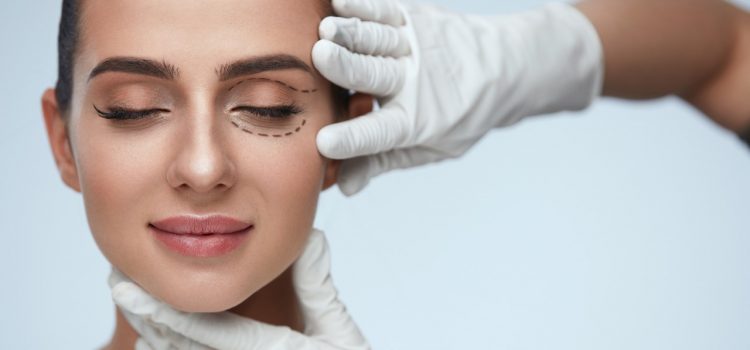
You don’t have to be in the dark when it comes to preparing for eyelid surgery. Learn how to feel ready for this procedure, and what to expect during recovery, from Miami-based plastic surgeon Dr. Tanenbaum.
Initial Consultation
To determine if you’re a good candidate for eyelid surgery, also known as blepharoplasty, you’ll first need to have a consultation. This will help you and your doctor figure out the best type of eyelid surgery for you, and what your procedure and recovery will look like. It’s important to discuss the results you hope to achieve so your doctor is on the same page regarding your reasons for this corrective surgery.
During this first consultation, you can begin the screening process to see if your eyelid surgery will be covered by insurance. Sometimes it’s deemed a necessary medical procedure, whereas other times it’s deemed an optional, cosmetic procedure.
Types of Eyelid Surgery
Dr. Tanenbaum is an ophthalmic plastic surgeon who offers the following types of eyelid surgery in Miami:
- Upper Eyelid
- Lower Eyelids
- 4 Lid Blepharoplasty
Other procedures available include:
- Brow Lift
- Mid Face Lift
These cosmetic surgery procedures may be necessary to correct injuries, improve eyelid function, or improve vision for patients. These procedures can also be necessary for removing cysts, skin tags, or skin cancer. Whatever the reason, Dr. Tanenbaum and associates possess the skills necessary to make corrections to this delicate area of the face.
Pre-Op Steps to Take
Once you’ve decided to undergo eyelid surgery, you may need to pass a medical evaluation to ensure the procedure is as safe as possible. Since blepharoplasty is usually an outpatient surgery, you want to be ready to take on the bulk of your recovery needs at home. If you’re not in good health, you may need to opt out of certain procedures. After you’re medically cleared for surgery, take the following steps to prepare:
- Arrange for a ride home from the surgery
- Schedule for loved ones to visit you in the days following surgery in case you need assistance
- Discuss current medications with your doctor to see if they need to be adjusted or paused before surgery
- Don’t smoke for at least a week prior to surgery
- Abstain from drinking alcohol in the week leading up to surgery
- Fill any prescriptions needed for post-op before your surgery
- Plan meals for your recovery time so you’re not worried about fueling your body after surgery
- Fast for at least 12 hours before your scheduled operation time
Since every patient Dr. Tanenbaum sees in his Miami plastic surgery practice is different, you may receive instructions specific to your circumstances. Use your initial consult and follow-up appointments to ask all questions that come to mind regarding your eyelid surgery.
What to Expect at the Time of Surgery
Since eyelid surgery is an outpatient procedure, you will most likely receive local anesthesia. If a different form of sedation is better for you, your doctor will discuss it prior to your operation.
Depending on the type of blepharoplasty (upper, lower, or four-lid), your incisions will be strategically made to reduce the appearance of scars. Thankfully, our eyelids have creases that serve as ideal locations for the incisions that are needed to correct drooping or hooded lids.
Post-Op Expectations
It may be about a week before your sutures are removed unless they’re designed to dissolve on their own. During this recovery period, it’s important to rest as much as possible and to be patient regarding your results. Here’s what else you can expect post-op:
- You may need to apply lubricating ointment and cold compresses to your eyes during recovery
- Your eyes may need to be closed and covered with gauze for part of your recovery
- There may be bruising around the eyes
- Your eyes may feel dry or itchy
- Plan to wear protective sunglasses following surgery (especially important in Miami!)
- Give yourself at least two weeks to see significant improvement in your eyes after eyelid surgery
You can prolong the effectiveness of your eyelid surgery by wearing clothing and hats that protect your face from the sun. Also, incorporate SPF 50 as part of your daily skincare routine to reduce signs of premature aging due to sun exposure.
Still have questions? Check out Dr. Tanenbaum’s FAQ page, or contact his office HERE.
